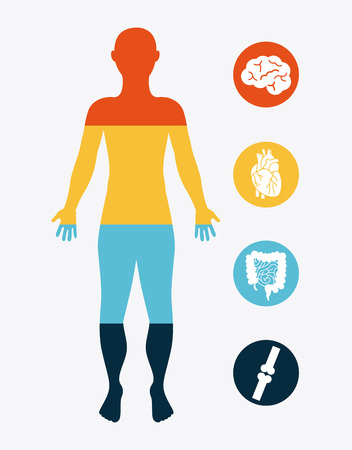1. Understanding Hydration: What Does It Really Mean?
When it comes to recovery and healing, hydration is often mentioned, but what does it truly mean to be “hydrated”? At its core, hydration refers to the process of providing your body with enough water to enable optimal function at a cellular level. Water is involved in nearly every physiological process, from regulating body temperature to transporting nutrients and aiding in tissue repair. There’s a common myth that everyone needs exactly eight glasses of water a day, but the truth is more nuanced—hydration needs are deeply personal and influenced by factors like age, activity level, diet, and even where you live.
In the UK, our hydration habits are uniquely shaped by local climate and culture. The temperate weather—often cool and damp—can lull us into thinking we don’t need as much water as those in hotter countries. Yet indoor heating during colder months can be surprisingly dehydrating, while summer heatwaves, though rare, catch many off guard. Add to this our love of tea (which still counts towards daily fluid intake), and the picture becomes even more complex. Lifestyle choices also matter; whether you’re cycling along the Thames, hiking in the Lake District, or simply navigating a busy workday in London, your daily hydration needs will shift accordingly.
By understanding what true hydration means and recognising how UK-specific factors play a role, you can make more informed choices about your water intake—and support your body’s natural recovery processes more effectively.
2. The Science Behind Water and the Human Body
Water is often called the elixir of life for a good reason—it forms the foundation of nearly every physiological process within the human body. When we talk about hydration, we aren’t just referring to quenching thirst; we’re delving into how water is intricately involved in supporting our organs, muscles, and brain. Understanding this science gives us a clearer picture of why staying hydrated is pivotal for recovery and ongoing health.
How Water Supports Our Organs
Our organs rely on water to function efficiently. For instance, the kidneys use water to filter waste products from the blood, while the liver depends on adequate hydration to metabolise toxins and process nutrients. Even our heart’s ability to pump blood effectively hinges on having enough fluid in our system.
| Organ | Role of Water |
|---|---|
| Kidneys | Flushes out toxins and regulates fluid balance |
| Liver | Aids in detoxification and nutrient processing |
| Heart | Keeps blood viscosity optimal for circulation |
The Crucial Link Between Water and Muscle Function
When it comes to muscles, hydration becomes even more critical—especially if you’re engaging in physical activity or recovering from injury. Muscles are made up of about 75% water. Adequate hydration ensures that muscle fibres remain flexible, reduces cramping, and allows nutrients and oxygen to be transported efficiently. Dehydration, by contrast, can lead to fatigue, decreased performance, and slower recovery times.
The Brain: Hydration’s Unsung Hero
We can’t talk about recovery without mentioning cognitive health. The brain is composed of approximately 73% water, and even mild dehydration can impair concentration, mood, and memory. Water helps maintain neurotransmitter function, supports mental clarity, and even affects sleep quality—all vital elements for both physical healing and emotional wellbeing.
Summary Table: The Physiological Impact of Hydration
| Body System | Hydration Benefits |
|---|---|
| Organs | Improved detoxification & metabolic efficiency |
| Muscles | Enhanced flexibility & faster recovery |
| Brain | Better focus & emotional stability |
This scientific breakdown underscores one truth: water is not merely a background player but a leading force in maintaining our health and supporting effective recovery. Whether you’re looking to bounce back from illness or simply keep your body ticking over smoothly during daily life here in the UK, understanding these mechanisms makes all the difference.
![]()
3. Hydration and Recovery: Healing After Illness or Injury
Staying hydrated is often underestimated when it comes to the recovery process after illness or injury, yet it plays a pivotal role in supporting the body’s natural healing mechanisms. Water helps transport essential nutrients to cells, flushes out toxins, and maintains optimal blood volume – all crucial for recovery. According to NHS guidelines, ensuring regular fluid intake is key, especially during periods of fever, infection, or after surgery, as dehydration can slow down healing and worsen symptoms. In British healthcare settings, patients are frequently reminded by GPs and nurses to sip water throughout the day rather than relying on thirst alone, since the sensation of thirst can diminish during illness. The NHS recommends consuming at least 6-8 glasses of fluids daily – not just plain water but also tea, diluted squash, or even soup, which are all familiar comforts in UK homes. These practices are woven into hospital routines too; you’ll notice jugs of water placed at every bedside and gentle encouragement from staff to keep drinking. This hands-on approach reflects an understanding that hydration is not simply about quenching thirst – it’s about actively supporting tissue repair, regulating body temperature, and replacing fluids lost through sweating, vomiting, or diarrhoea. From my own experience recovering from seasonal flu and following sports injuries, I’ve found that making hydration a priority speeds up my return to normal life. It’s a small act with outsized benefits: clearer thinking, more energy, and faster healing all round.
4. Hydration for Everyday Wellbeing
Staying hydrated isn’t just about bouncing back from illness or powering through a workout; it’s woven into the very fabric of our daily lives here in the UK. From the moment we wake up to that cherished afternoon cuppa, our water intake plays a subtle but critical role in how we feel, think, and perform.
The Link Between Hydration, Mood, and Focus
Ever felt irritable or sluggish mid-afternoon? Research consistently shows that even mild dehydration can affect mood, concentration, and energy levels. A well-hydrated brain is better equipped to process information, make decisions, and maintain a positive outlook—crucial whether you’re facing a demanding workday or managing family life.
British Habits: Tea, Coffee, and Hydration
Here in Britain, tea-drinking is more than a habit—it’s a cultural cornerstone. But how does our love of tea (and coffee) fit into the hydration puzzle? While these beverages do contain water, they also have caffeine, which can have a mild diuretic effect if consumed in large amounts. However, moderate consumption still contributes to your daily fluid needs. The key is balance and awareness.
Fluid Sources and Their Hydration Impact
| Beverage | Hydration Contribution | Cultural Note |
|---|---|---|
| Water | Excellent – most direct source | Always available; often overlooked for tea |
| Tea (black/green/herbal) | Good – counts towards intake | A national favourite; social ritual |
| Coffee | Good – moderate amounts help hydrate | Rising popularity; morning pick-me-up |
| Fizzy drinks & squash | Varies – often high sugar/sweetener content | Popular with children and teens |
| Alcoholic beverages | Poor – can increase dehydration risk | Pubs are part of social culture |
Tuning In To Your Body’s Cues
The classic “eight glasses a day” rule doesn’t always fit our varied British climate and lifestyles. Whether you’re on your feet all day or desk-bound, listening to your body—dry mouth, headaches, tiredness—can be more telling than any rigid guideline. Carrying a reusable water bottle or swapping every second cuppa for plain water can make all the difference.
The Takeaway: Small Changes, Big Impact
Prioritising hydration amidst our busy schedules and cherished traditions is about small adjustments rather than overhaul. Whether you start by sipping water between meetings or being mindful of caffeine intake during afternoon tea, nurturing this simple habit pays dividends in mood, clarity, and all-round wellbeing.
5. Practical Tips for Staying Hydrated in the UK
The British climate—with its often damp, cool conditions—can be deceptive when it comes to hydration needs. Unlike hot or tropical countries where sweat is obvious and thirst is constant, the UK’s milder weather means you might not feel thirsty until you’re already dehydrated. Here’s how to stay on top of your hydration game, whether you’re at work, socialising with friends, or tackling your daily routine.
Understand Your Environment
Don’t be fooled by cloudy skies or chilly winds—your body loses water even in cold weather. Central heating during winter can also dry you out. In summer, unpredictable heatwaves can catch you off guard. Make it a habit to carry a reusable water bottle with you, regardless of the season. Opt for insulated bottles to keep your drink cool or warm as needed, making it more appealing to sip throughout the day.
Hydration at Work
With many Brits working long hours at desks or on their feet, it’s easy to forget about drinking enough water. Set hourly reminders on your phone or computer, or use apps designed to track your intake. If you’re in meetings all day, bring a bottle with you and take small sips regularly. Tea is a beloved staple across the UK—while it does count towards your fluid intake, balance it with plain water to avoid excess caffeine.
Monitor Your Hydration Levels
A simple way to check if youre hydrated is by looking at your urine—it should be pale straw-coloured. Darker shades mean you need more fluids. You might also notice headaches, fatigue, or difficulty concentrating when dehydrated; these are common signs that it’s time for a top-up.
Social Habits and Hydration
Pubs and social gatherings are central to British culture, but alcohol can dehydrate you quickly. For every pint of lager or glass of wine, alternate with a glass of water. Not only does this help with hydration and recovery, but it also reduces hangover risk the next day—a practical tip from countless nights out!
Incorporate Water-Rich Foods
British diets include plenty of fruits and vegetables that contribute to hydration—think cucumbers, tomatoes, apples, and berries. Add these to lunchboxes or snack on them during tea breaks. Soups and broths are especially comforting in colder months and offer another tasty way to boost your fluid intake.
Make Hydration a Daily Ritual
Ultimately, staying hydrated in the UK isn’t about drastic changes—it’s about building small habits into everyday life: keeping water within reach at all times, balancing caffeinated drinks with water, listening to your body’s cues, and adapting to both the weather outside and the pace of your lifestyle. By doing so, you’ll support recovery, healing, and overall wellbeing—rain or shine.
6. Spotting Dehydration: What to Watch Out For
Recognising dehydration early is essential for supporting recovery and overall wellbeing, especially in the UK where our unpredictable weather and busy lifestyles can make it easy to overlook fluid intake. According to local GPs and the NHS, some of the earliest warning signs include feeling unusually thirsty, experiencing a dry mouth, headaches, or dizziness—symptoms that many Brits might mistake for just being tired or run down after a long day. In colder months, we may not feel as thirsty, but indoor heating and central heating systems can also contribute to fluid loss without us realising.
Common Early Warning Signs
Beyond thirst, watch out for darker-than-usual urine, feeling lethargic or irritable, and even struggling to concentrate. Children and older adults in the UK are particularly at risk because they may not always communicate their needs clearly. If you notice sunken eyes, confusion, or a sudden drop in energy levels in yourself or loved ones, it’s time to take these signals seriously.
Local GP Guidance
The NHS advises carrying a reusable water bottle with you—whether you’re commuting on the Tube or walking through the countryside—to encourage regular sipping throughout the day. Many local surgeries recommend checking your hydration by looking at your urine colour: pale straw-coloured urine usually means you’re well-hydrated, while anything darker suggests you need more fluids.
When to Seek Help
If you or someone else starts experiencing severe symptoms such as persistent vomiting, fainting spells, rapid heartbeat, or confusion—especially during heatwaves or after illness—it’s important to seek medical help promptly. The NHS 111 service is available for advice if you’re unsure whether symptoms warrant a visit to A&E. Remember, taking dehydration seriously is a key part of supporting your body’s recovery and healing journey in any British season.


